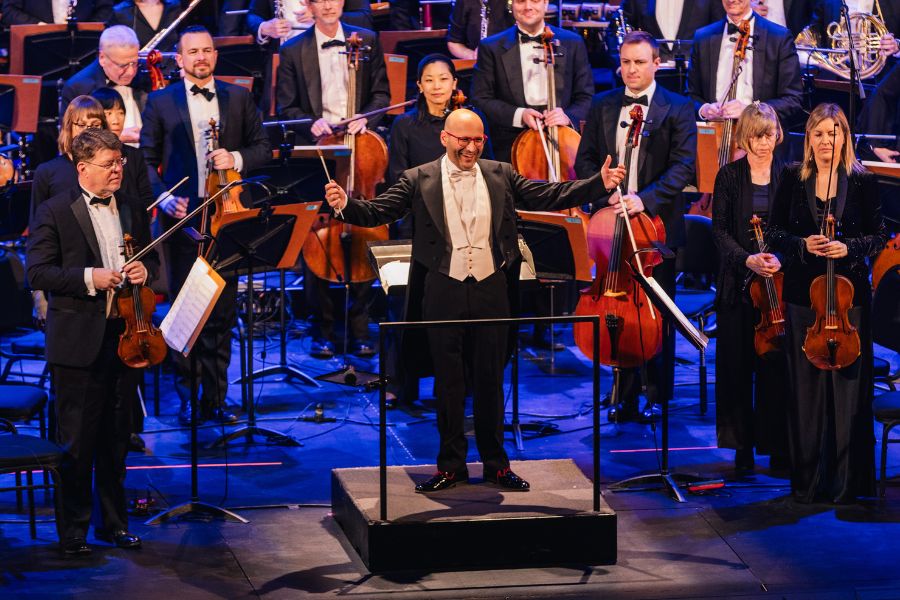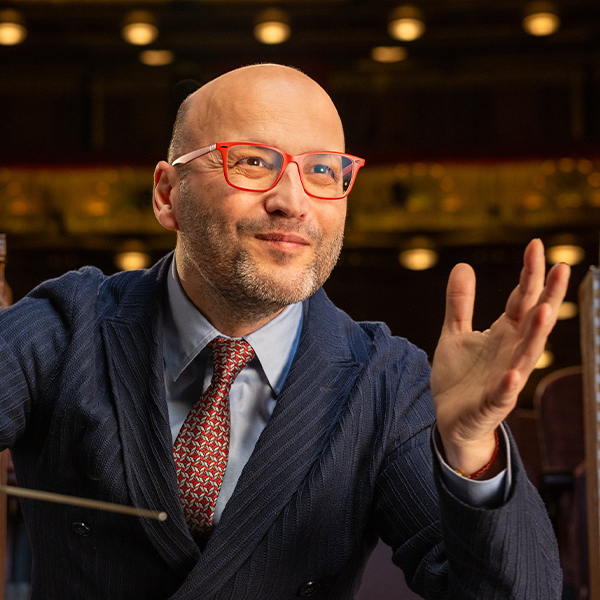August 21, 2025
Get to know: Orff's "Carmina Burana"
Among the most famous and frequently performed choral works of the 20th century, Carmina Burana will receive its Lyric Opera of Chicago debut this season, bringing the work’s large scale and dramatic nature to vivid life. Composed by German composer Carl Orff in 1935 and 1936, this monumental cantata is based on a collection of medieval poems found in a manuscript of the same name. Its vivid, primal energy, powerful rhythms, and striking use of voice and orchestra have made it an enduring favorite in both concert halls and popular culture.
The title Carmina Burana translates from Latin to "Songs of Beuern," referencing the Benedictine monastery in Bavaria where the manuscript was discovered in 1803. Containing more than 200 texts in Latin, Middle High German, and Old French, written by medieval students and clergy in the 11th to 13th centuries, the writings explore a wide range of themes including the fickleness of fortune, the pleasures and dangers of drinking, love, lust, and gambling, and the transient nature of life.
Orff selected 24 of these poems and set them to music in a unique, emotionally intense style, its rawness matching the often bawdy original texts. The work premiered in 1937 and became immensely popular, particularly after World War II. At Lyric, the renowned Lyric Opera Orchestra and Chorus will be joined by three soloists and Uniting Voices Chicago.

Music Director Enrique Mazzola leads the Lyric Opera Orchestra in Wondrous Sound during the 2024/25 Season.
Orff’s work departed from the prevailing styles of his day, relying rather on rhythmic primacy, simple harmonies, and chant-like melodies. His approach emphasizes dramatic effect and a visceral connection with the audience — a power most evident, perhaps, in the dramatic opening and closing movement, “O Fortuna.” The boisterous and instantly recognizable choral tour-de-force has been widely used in films, television, commercials, and even sports events, embedding it deeply in popular culture. Elsewhere the chorus often functions almost like a Greek chorus, reacting to the drama of the texts and amplifying the emotional stakes. The presence of the children's choir adds an innocent or ironic contrast to the decidedly adult themes.
The orchestration, too, is as grand as the themes it portrays. Orff calls for a large orchestra with expanded percussion, including castanets, sleigh bells, and a whip, as well as two pianos and celesta.
On November 14 and 16, these forces will be under the baton of Lyric’s music director Enrique Mazzola, in a can’t-miss production displaying the powerful musicianship of the company’s core ensembles.

